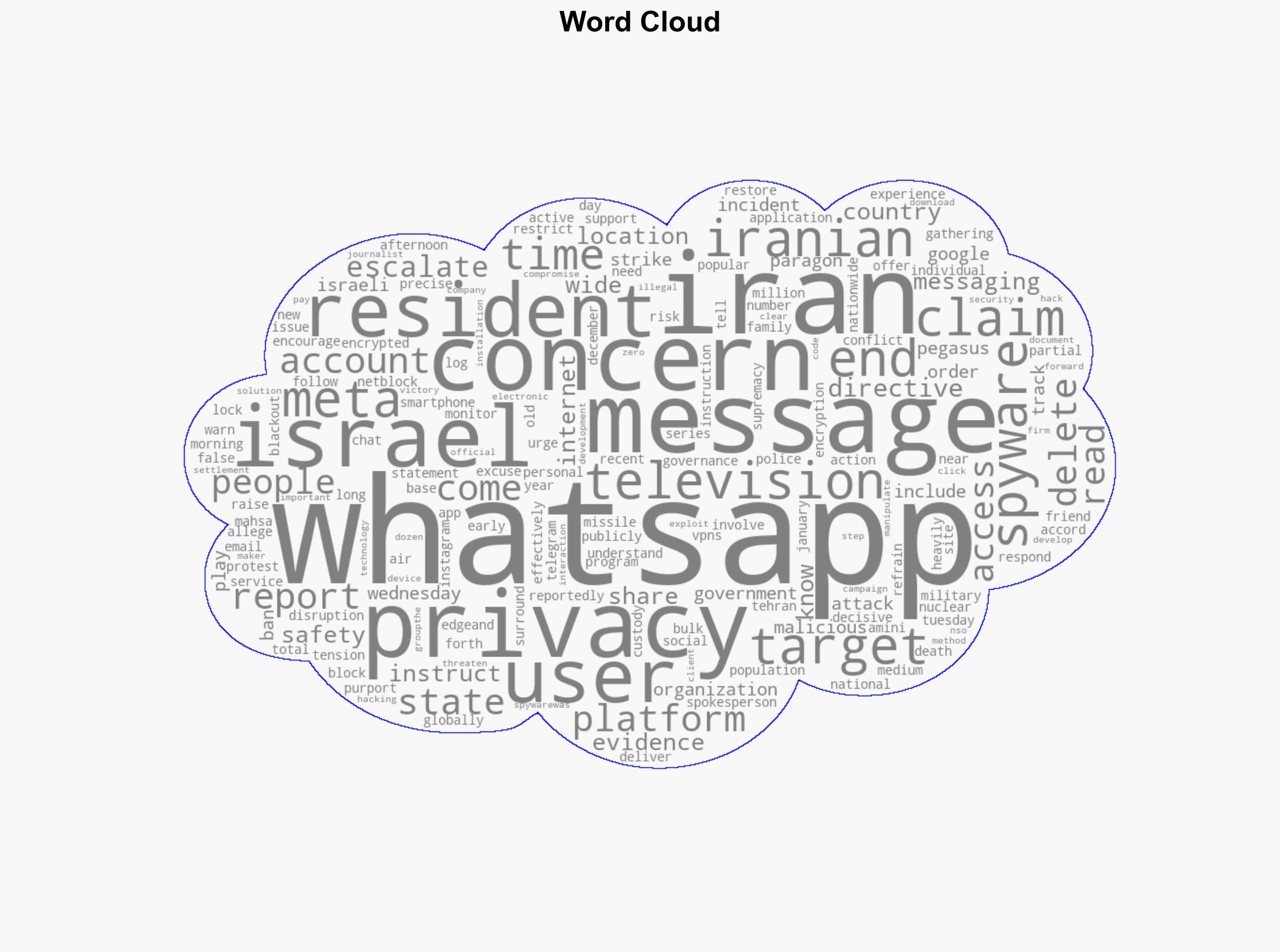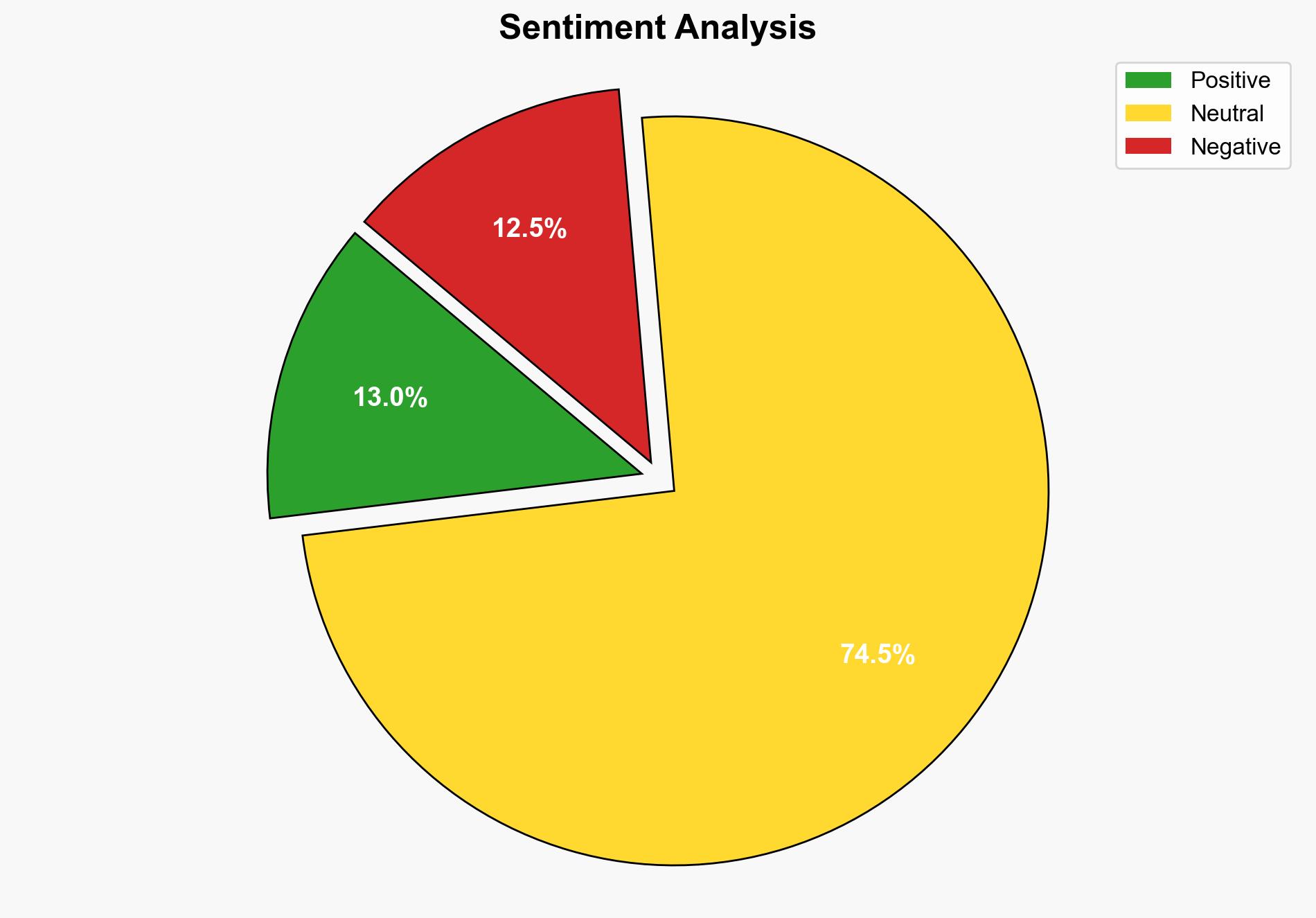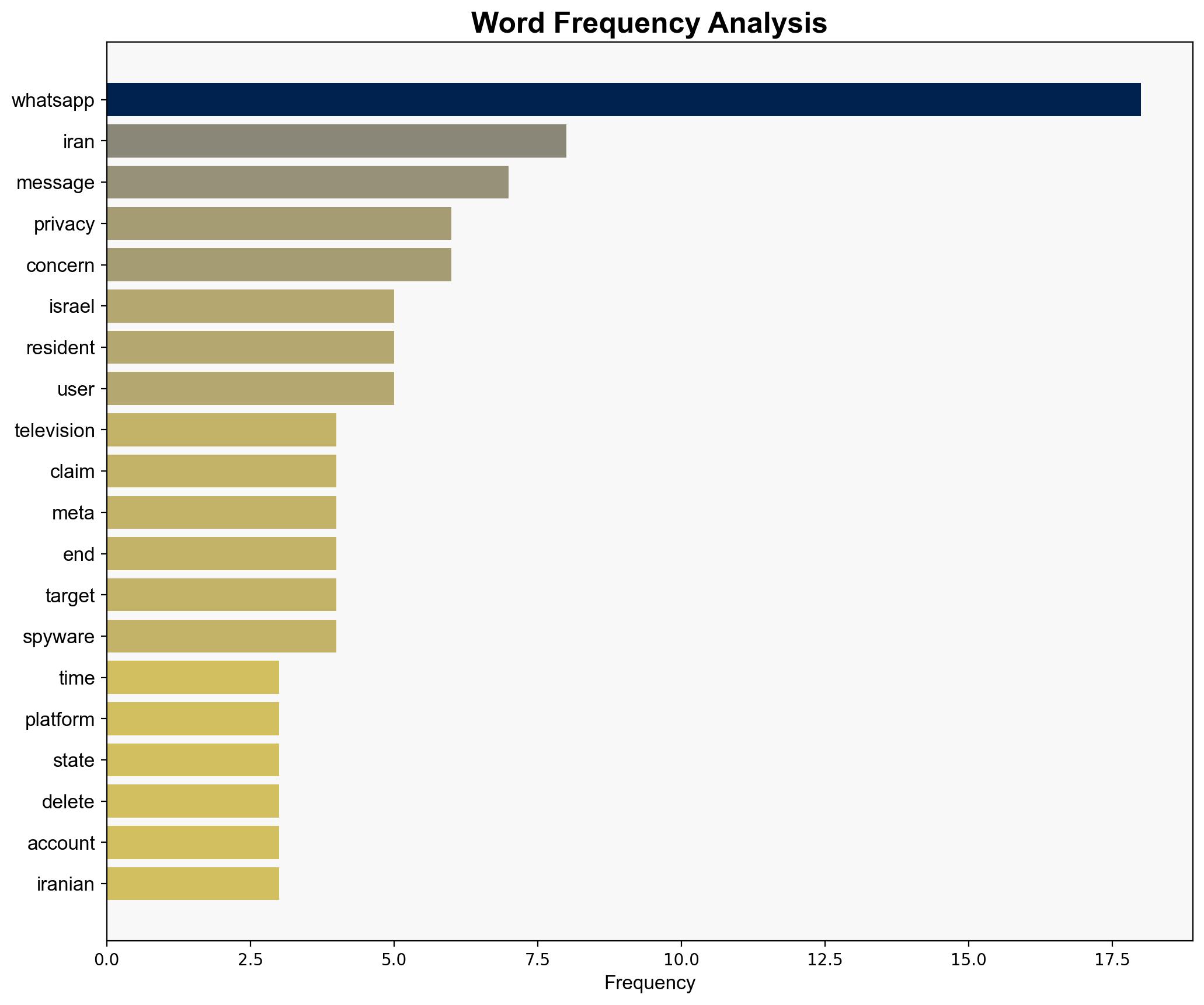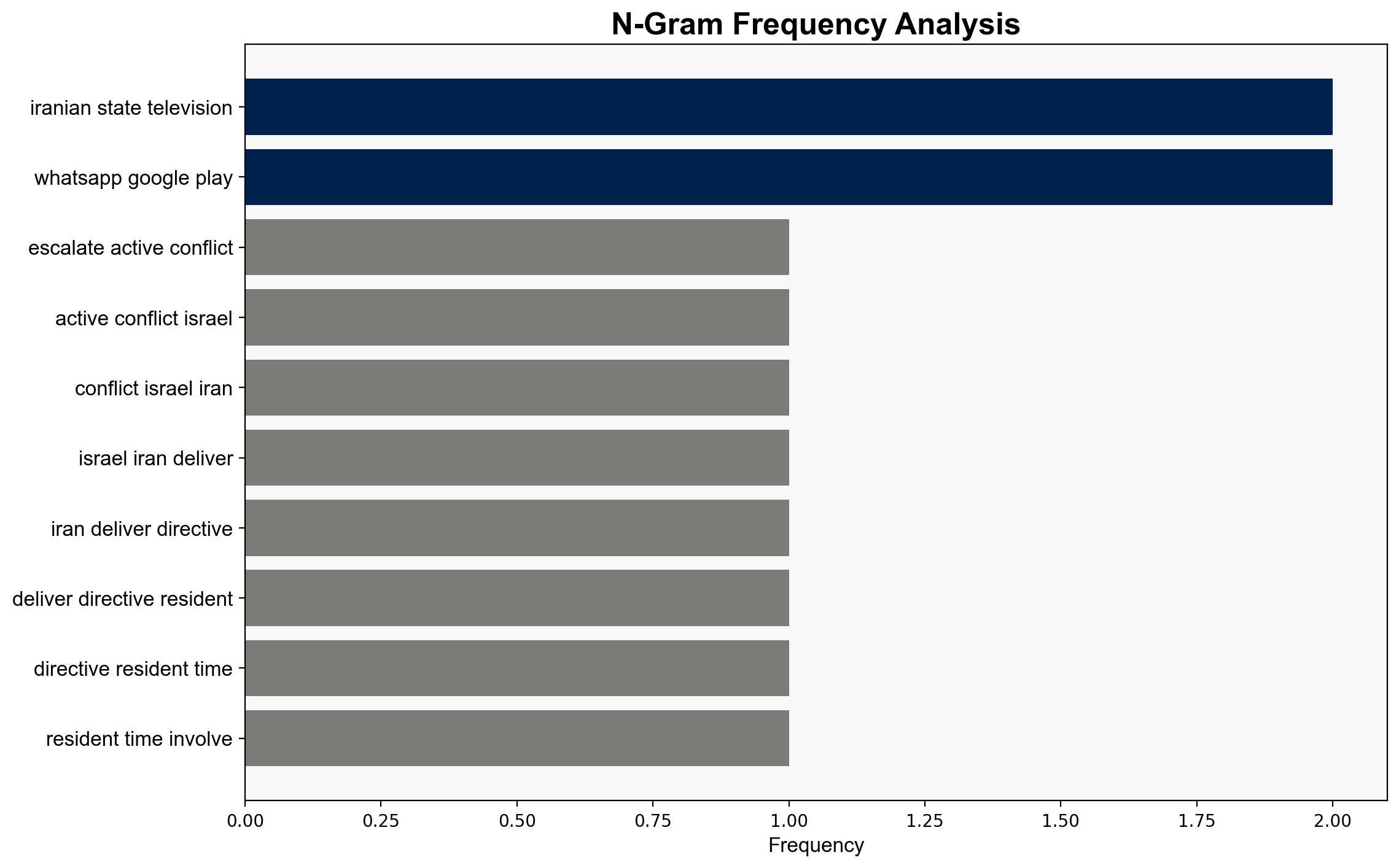Why Iran Is Urging Residents to Delete WhatsApp Amid Israel Conflictand WhatsApps Response – Time
Published on: 2025-06-18
Intelligence Report: Why Iran Is Urging Residents to Delete WhatsApp Amid Israel Conflict and WhatsApp’s Response – Time
1. BLUF (Bottom Line Up Front)
Iran has instructed its residents to delete WhatsApp, citing safety and privacy concerns amidst escalating tensions with Israel. This directive coincides with a near-total internet blackout in Iran, raising questions about the government’s motives and the potential for increased cyber surveillance. WhatsApp has countered these claims, emphasizing its end-to-end encryption and denying any tracking of user messages. Strategic recommendations include monitoring communication platforms for misinformation and preparing for potential cyber threats.
2. Detailed Analysis
The following structured analytic techniques have been applied to ensure methodological consistency:
Adversarial Threat Simulation
The directive to delete WhatsApp may be part of a broader strategy to control information flow and mitigate perceived cyber threats from adversaries. By simulating potential cyber adversary actions, vulnerabilities in communication networks can be anticipated and addressed.
Indicators Development
Monitoring for anomalies in communication patterns and internet access can provide early warnings of state-imposed restrictions or cyberattacks. The recent internet disruptions in Iran serve as critical indicators of potential state intervention.
Bayesian Scenario Modeling
Using probabilistic inference, scenarios where Iran might escalate cyber operations against perceived threats can be modeled. This includes potential pathways for cyberattacks targeting communication platforms used by adversaries.
3. Implications and Strategic Risks
The directive to delete WhatsApp suggests heightened concerns over cybersecurity and information control within Iran. This move could lead to increased state surveillance and restrictions on digital communication. The broader geopolitical context, including military tensions with Israel, may exacerbate these risks, potentially affecting regional stability and international relations.
4. Recommendations and Outlook
- Enhance monitoring of communication platforms for misinformation and state-imposed restrictions.
- Develop contingency plans for potential cyberattacks targeting communication infrastructure.
- Scenario-based projections:
- Best Case: De-escalation of tensions leads to restored communication freedoms.
- Worst Case: Increased cyber surveillance and restrictions on digital platforms.
- Most Likely: Continued state control over communication channels amidst ongoing geopolitical tensions.
5. Key Individuals and Entities
– Mahsa Amini (contextual reference to protests)
– Paragon Solutions (Israeli spyware maker)
– NSO Group (developer of Pegasus spyware)
6. Thematic Tags
national security threats, cybersecurity, counter-terrorism, regional focus





